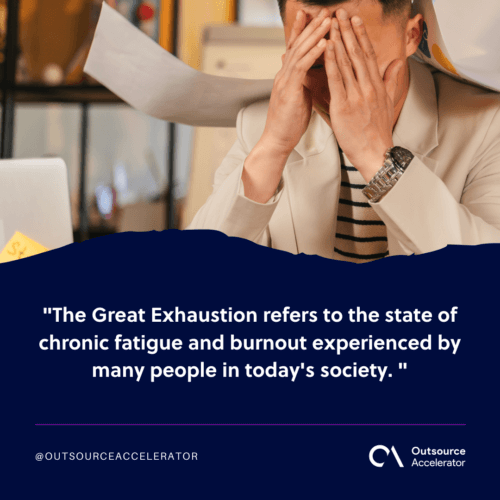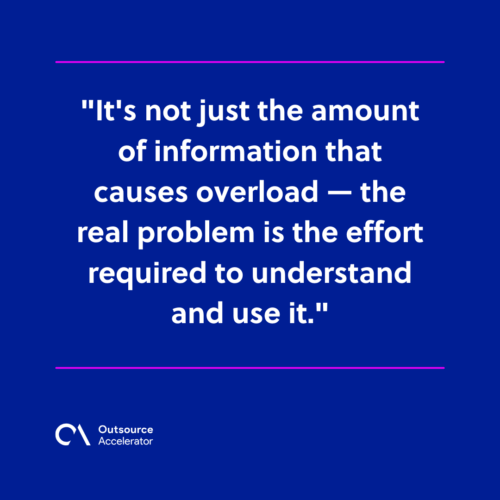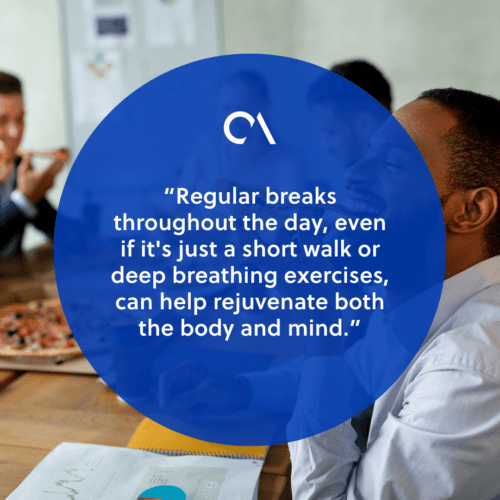A closer look into The Great Exhaustion

Have you ever felt like you’re constantly running on empty, struggling to find the energy and motivation to tackle your daily tasks?
You’re not alone. Many people experience what’s been coined as The Great Exhaustion.
It’s not uncommon to feel overwhelmed and exhausted. The constant demands and pressures of work, personal life, and technology can leave us feeling drained and depleted.
However, this phenomenon is a growing concern that affects individuals of all ages and backgrounds. Following the COVID-19 pandemic, many experienced the adverse effects of going in and out of the office — and work in general.
The New York Times even ran an article entitled “The New Phase of the Pandemic is Covid Exhaustion” in 2022. Yet, even years on, this widespread fatigue just won’t budge.
Let’s dive deeper into what The Great Exhaustion is, its causes, effects, and most importantly, how to overcome it.
What is The Great Exhaustion?
The Great Exhaustion refers to the state of chronic fatigue and burnout experienced by many people in today’s society.
It is characterized by a constant feeling of tiredness, both physical and mental, that persists despite adequate rest and relaxation. This condition can have a profound impact on our overall well-being and quality of life.
In the world of work, this phenomenon follows other waves of change following the pandemic, like The Great Resignation and the Remote-Work Wars.

Causes of The Great Exhaustion
It’s difficult to figure out the exact source of this existential tiredness. Even though things are getting relatively back to normal, workers are still feeling this weird sense of weariness.
Here are possible reasons as to why they still perceive as if things aren’t quite back to normal:
Digital overload
One major culprit is the ever-increasing demands of our modern lifestyles. The constant connectivity provided by technology has blurred the boundaries between work and personal life, making it difficult to switch off and unwind.
Because we’re always plugged in and accessible, we’re constantly bombarded with emails, notifications, and social media updates, leaving little time for genuine relaxation.
The Harvard Business Review also points out that burden, not volume, drives information overload. It’s not just the amount of information that causes overload — the real problem is the effort required to understand and use it.
This constant stream of data and notifications can overwhelm our senses and contribute to mental fatigue and burnout.

Overwork and stress
The pressure to constantly perform and meet deadlines can lead to chronic stress and overwork.
Balancing work, family, and your personal life can feel like an uphill battle. This is especially true following the collective trauma we all experienced during the pandemic.
If you’ve been feeling like you’ve been in survival mode for the past couple of years, you’re not the only one.
The constant changes in COVID-19 rules, dealing with loss and grief, and changes in social support have all added up to a lot of stress. It’s like climbing a mountain, only to face another steep slope each time you reach the top.
Competitive nature of business
The competitive nature of the business world also plays a significant role in contributing to exhaustion.
The fear of falling behind or missing out pushes individuals to work longer hours and take on more responsibilities, often neglecting their own well-being in the process.
Effects of The Great Exhaustion
The effects of The Great Exhaustion can be detrimental to both our physical and mental health. For workers, its most significant impacts are:
Decreased productivity
Exhaustion can impair cognitive function, making it difficult to focus, concentrate, and make decisions. It can lead to decreased productivity at work and difficulty completing tasks efficiently.
Physical health issues
Physically, chronic fatigue can weaken our immune system, making us more susceptible to illness and disease. It can lead to a range of health issues, such as high blood pressure, heart disease, and obesity.
Constant exhaustion can also lead to fatigue-related symptoms like headaches, muscle tension, and digestive problems.
Mental health struggles
Mentally, exhaustion can impair our cognitive functions, making it challenging to concentrate, think clearly, and make sound decisions. It can also contribute to increased levels of stress, anxiety, and depression.
In fact, the World Health Organization found that the global prevalence of anxiety and depression has risen to a concerning 25% since the first year of the pandemic.
Furthermore, The Great Exhaustion can strain our personal relationships, as we may lack the energy and emotional availability to connect with loved ones.
How to overcome The Great Exhaustion
Overcoming The Great Exhaustion requires a multi-faceted approach that addresses both the underlying causes and provides practical solutions.
Here are some strategies to regain balance and beat exhaustion:
1. Set boundaries. Establish clear boundaries between work and personal life. Switch off notifications during non-working hours and create designated times for relaxation and leisure activities.
2. Practice self-care. Prioritize self-care activities such as exercise, proper nutrition, and quality sleep. These activities help recharge your energy levels and improve your well-being.
3. Take breaks. Regular breaks throughout the day, even if it’s just a short walk or deep breathing exercises, can help rejuvenate both the body and mind. Give yourself permission to step away from work and replenish your energy.

4. Delegate and say no. Don’t be afraid to delegate tasks and responsibilities whenever possible. Learn to say no to additional commitments that may overload your plate.
5. Seek support. Reach out to friends, family, or even professionals for support. Talking about your feelings and concerns can provide much-needed perspective and relief.
Beat The Great Exhaustion
Addressing The Great Exhaustion requires a collective effort from organizations, communities, and individuals.
Companies can play a vital role in creating a healthy work environment with:
- Clear work-life balance policies
- Encouraging employee well-being
- Providing resources for stress management
Communities can also foster a culture of support and connection with local initiatives that promote well-being and provide opportunities for social engagement.
In turn, individuals need to take responsibility for their own self-care, seeking help when needed and making conscious choices to prioritize their well-being.
The Great Exhaustion is a pervasive issue that affects many individuals in our fast-paced world.
By understanding its causes, recognizing its effects, and implementing practical strategies to overcome it, we can regain balance and lead healthier, more fulfilling lives.
Taking proactive steps to address The Great Exhaustion will not only benefit our own well-being but also contribute to a happier and more resilient society.







 Independent
Independent




